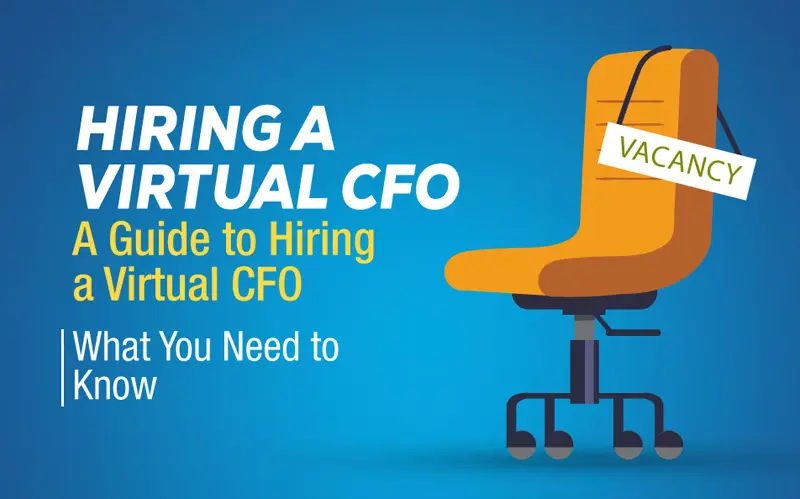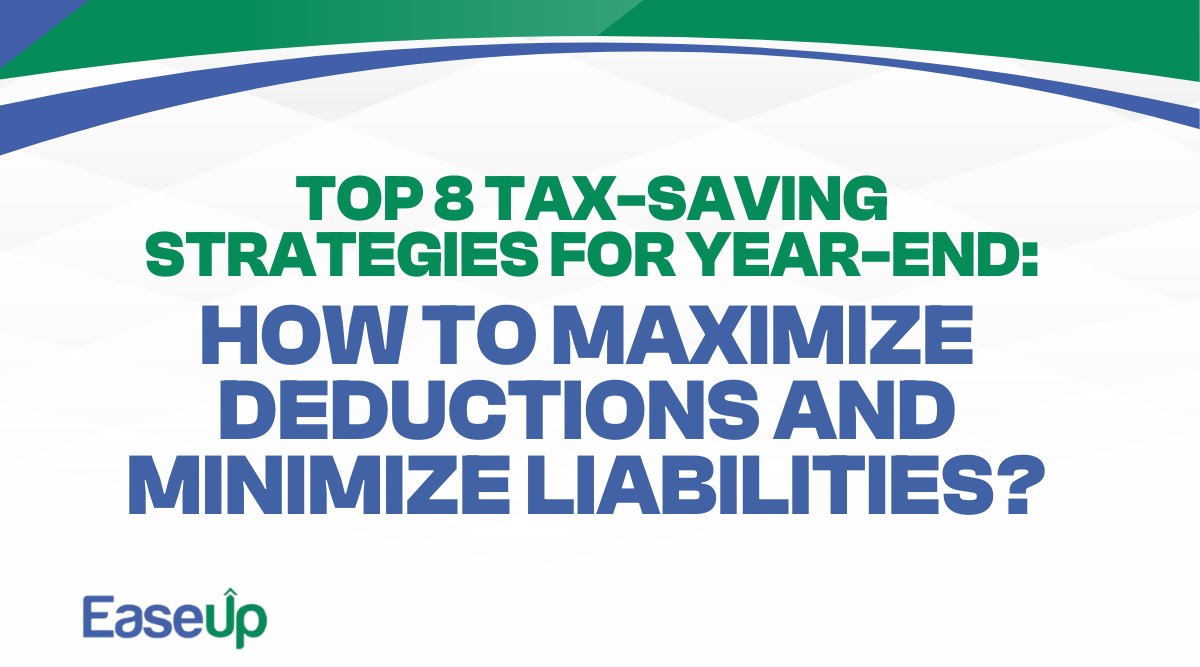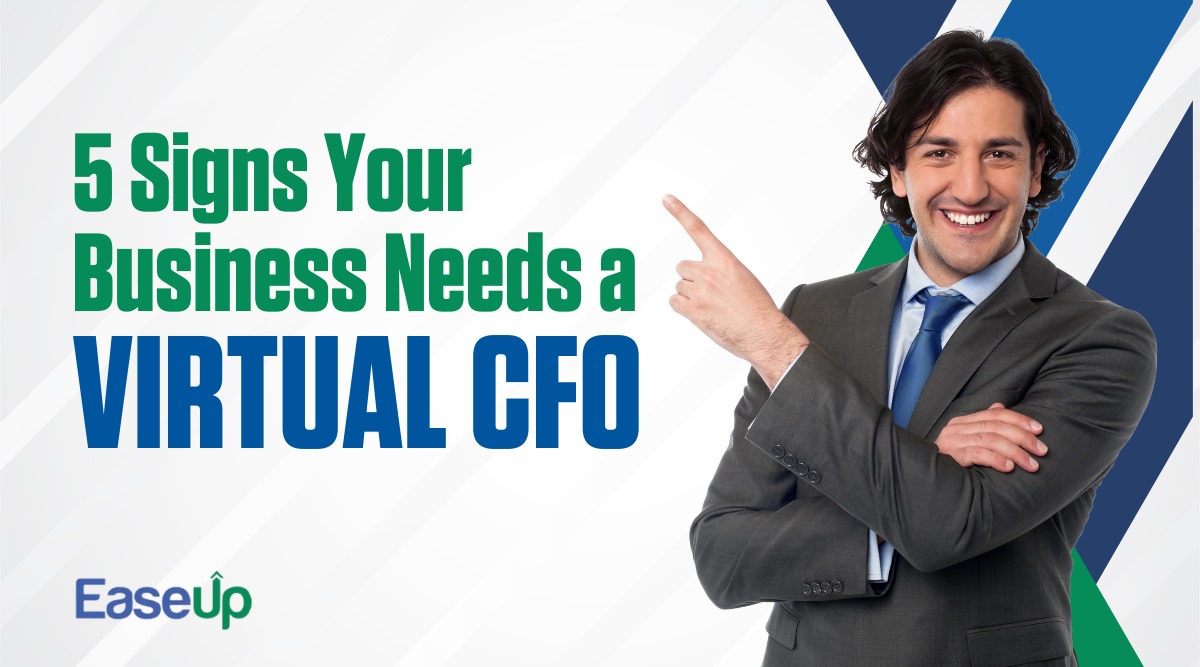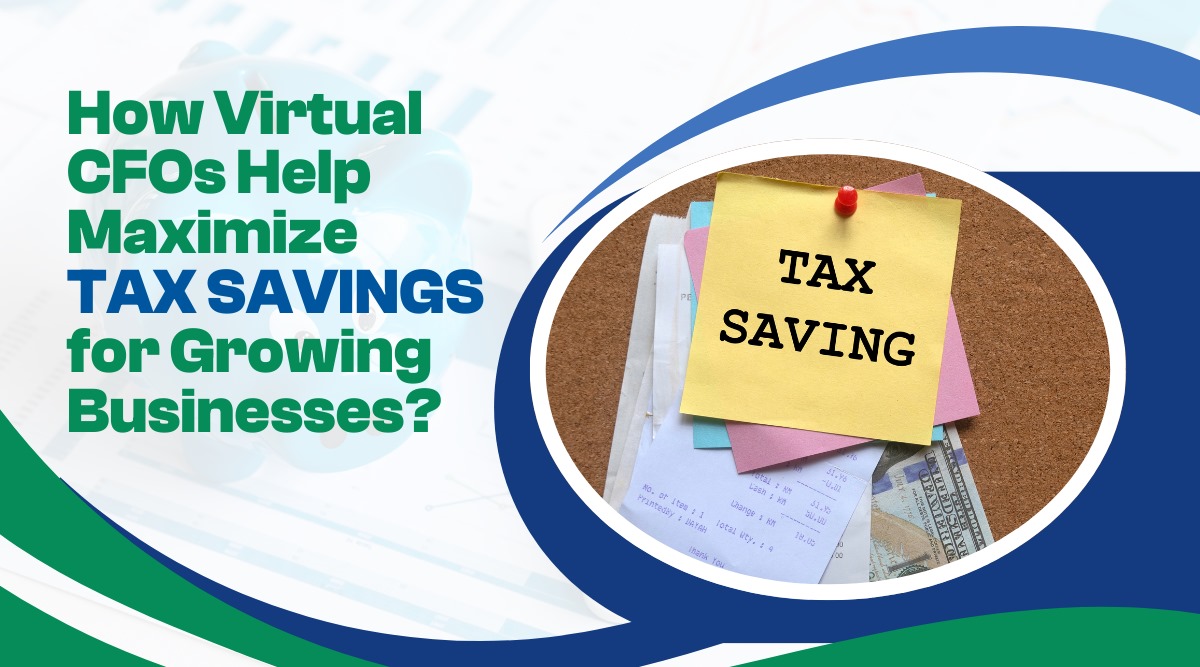

A Guide to Hiring a Virtual CFO: What You Need to Know
May 06,2024

In today’s fast-paced business environment, staying competitive requires strategic financial management that goes beyond simple bookkeeping. This is where a Virtual CFO (Chief Financial Officer) can step in, providing high-level financial guidance without the expense of hiring a full-time executive.
For startups, tech companies, and SMEs looking to streamline their finances, control costs, and build a strong financial strategy, a Virtual CFO can be an invaluable asset. This guide will help you navigate the process of hiring a Virtual CFO and ensure your business is well-positioned to reap the rewards.
Understanding the Role of a Virtual CFO
A Virtual CFO fulfils the same strategic financial role as an in-house CFO but operates on a flexible, part-time, or project basis. Their responsibilities include overseeing financial planning and analysis, budgeting, and forecasting. They also work on implementing strategies to optimize cash flow, ensure regulatory compliance, manage investor relations, and provide financial advice to guide critical business decisions.
A Virtual CFO works remotely or in a hybrid setup, offering the advantage of focused financial expertise without being tied down to office hours or a permanent salary. They’re ideal for startups that need expert guidance as they scale and mature, for tech companies navigating growth and new business models, and for SMEs seeking to strengthen their financial foundations.
Why Hire a Virtual CFO?
Businesses might hesitate to hire a full-time CFO due to cost concerns or not having enough responsibilities to justify the role. Virtual CFOs present a cost-effective alternative, offering expert financial management only when you need it.
Here are some key reasons why hiring a Virtual CFO is advantageous:
1. Cost-Effective Flexibility: Pay only for the services needed instead of a full-time CFO salary.
2. Specialized Expertise: Benefit from extensive industry knowledge and experience without incurring long-term costs.
3. Strategic Growth Planning: Receive tailored advice for scaling your business efficiently and profitably.
4. Objective Financial Analysis: Gain a fresh, unbiased perspective on your business finances.
5. Access to a Network: Many Virtual CFOs bring along valuable networks that can provide access to new opportunities and partnerships.
What to Look for When Hiring a Virtual CFO
Finding the right Virtual CFO involves evaluating qualifications, experience, and compatibility. Here are key criteria to consider:
1. Qualifications: Ensure candidates have appropriate certifications like CPA (Certified Public Accountant), CMA (Certified Management Accountant), or other relevant designations.
2. Industry Experience: Look for candidates who have specific experience in your industry to understand market trends and challenges.
3. Strategic Vision: Choose someone with a clear strategic vision for your business’s financial growth and a proven track record of helping similar companies succeed.
4. Soft Skills: Strong communication skills, leadership abilities, and adaptability are crucial for seamless integration into your business.
5. Compatibility: A good fit with your company culture is essential for successful collaboration.
Steps to Hiring a Virtual CFO
To find the right Virtual CFO for your business, follow these steps:
1. Determine Your Financial Needs: Assess the financial gaps in your business. Are you looking to scale or control costs? Do you need help with compliance, investor relations, or long-term planning?
2. Search for Candidates: Seek recommendations from your professional network, specialized financial agencies, or online platforms. Make sure candidates have verifiable experience and credentials.
3. Evaluate Candidates: Review CVs and portfolios to shortlist candidates. Check references and ask for case studies to evaluate their past successes.
4. Conduct Interviews: Prepare questions that gauge the candidate’s financial knowledge, problem-solving skills, and cultural fit with your team.
5. Make the Hiring Decision: Choose a Virtual CFO who meets your financial needs and aligns with your company culture. Clearly outline the scope of services, fees, and communication methods.
Integrating a Virtual CFO into Your Business
Integrating a Virtual CFO requires thoughtful onboarding and communication. Here’s how to ensure a seamless transition:
1. Define Responsibilities: Clearly define the Virtual CFO’s role, including reporting structures and key deliverables.
2. Collaborate with Teams: Encourage collaboration between the Virtual CFO and other departments for holistic decision-making.
3. Set Clear Communication Channels: Establish regular meetings or reports to keep your financial strategy on track.
4. Provide Access to Data: Grant access to relevant financial data for informed decision-making.
Case Studies: Success Stories of Virtual CFO Integration
Case Study 1: Growth Strategy for a SaaS Startup
A tech startup in the SaaS space needed financial clarity to attract investors and support its growth trajectory. With the help of a Virtual CFO, the startup improved its budgeting, achieved better cash flow management, and secured investor funding by clearly presenting its financial forecasts.
Case Study 2: Streamlining Operations for an SME
An SME with inconsistent profitability enlisted a Virtual CFO to streamline financial operations. Through strategic cost management and process improvements, the business increased profitability by 20% over the next fiscal year.
Case Study 3: Navigating a Complex Merger
A mid-sized company facing a complex merger sought a Virtual CFO to oversee the transaction. The CFO provided due diligence, structured the merger efficiently, and ensured a smooth transition.
Frequently Asked Questions
Q: How do Virtual CFOs charge for their services?
Fees vary, but most Virtual CFOs charge hourly, monthly, or project-based rates depending on the scope of work.
Q: Can a Virtual CFO handle day-to-day accounting?
Virtual CFOs primarily focus on strategic financial management but may also oversee accounting staff.
Q: What industries can benefit from Virtual CFO services?
Virtually any industry can benefit, especially startups, tech companies, SMEs, and organizations needing strategic financial planning.
Conclusion
Hiring a Virtual CFO is a strategic move that provides cost-effective financial guidance, helping your business thrive in a competitive environment. EaseUp offers trusted Virtual CFO services tailored to your business’s unique needs, enabling you to confidently take charge of your financial future.
Don’t let financial challenges hold you back! Contact EaseUp today to discuss how a Virtual CFO can help your business grow, optimize finances, and achieve its full potential.

CA Aditya Chokhra
April 16, 2025

Empower Your Business with Expert Financial Consulting
Latest Post
Leave a Reply

Contact us and subscribe to our newsletter to receive expert advice and industry updates.

Copyright © 2025 Easeupnow. All rights reserved.




















